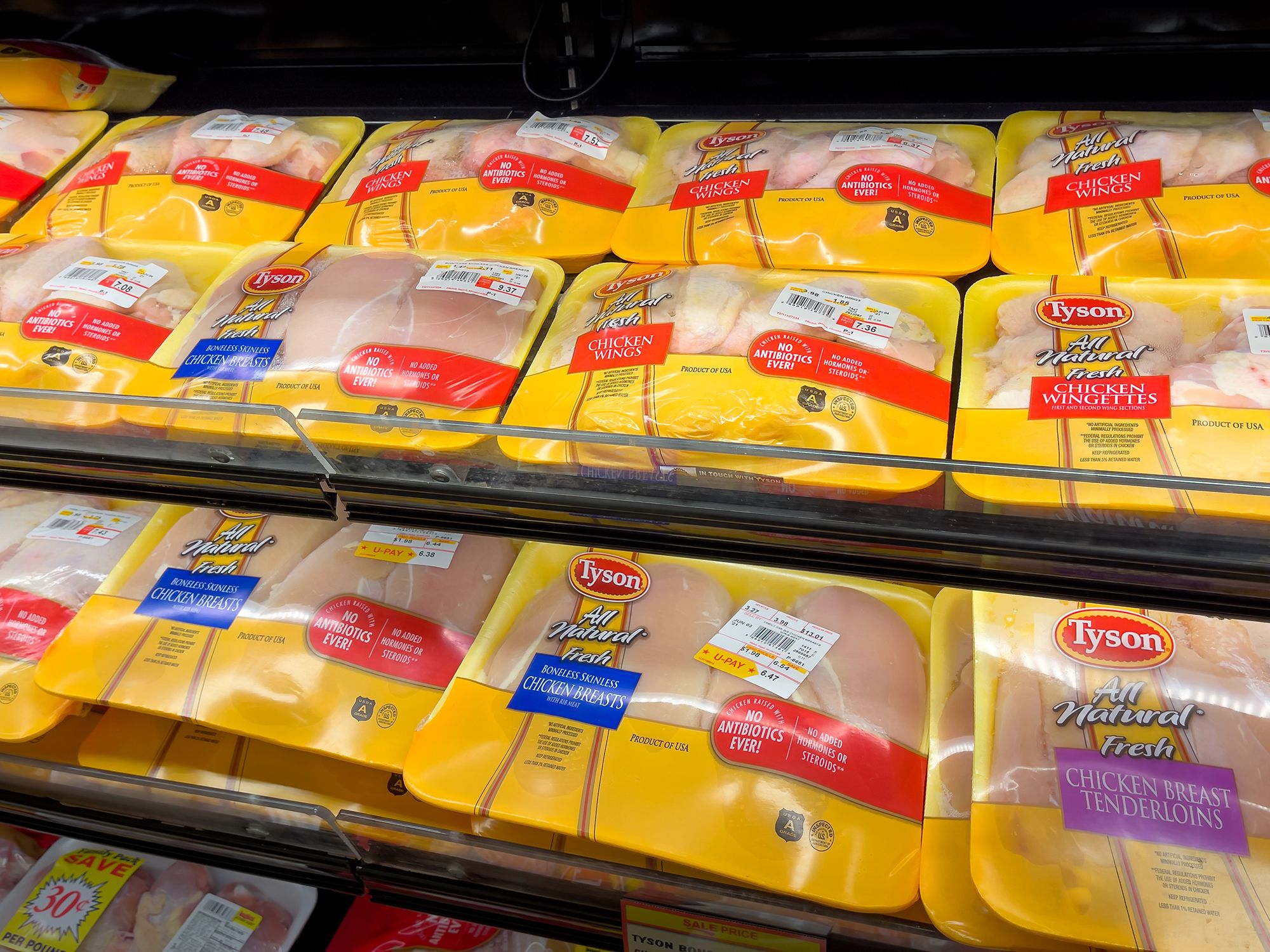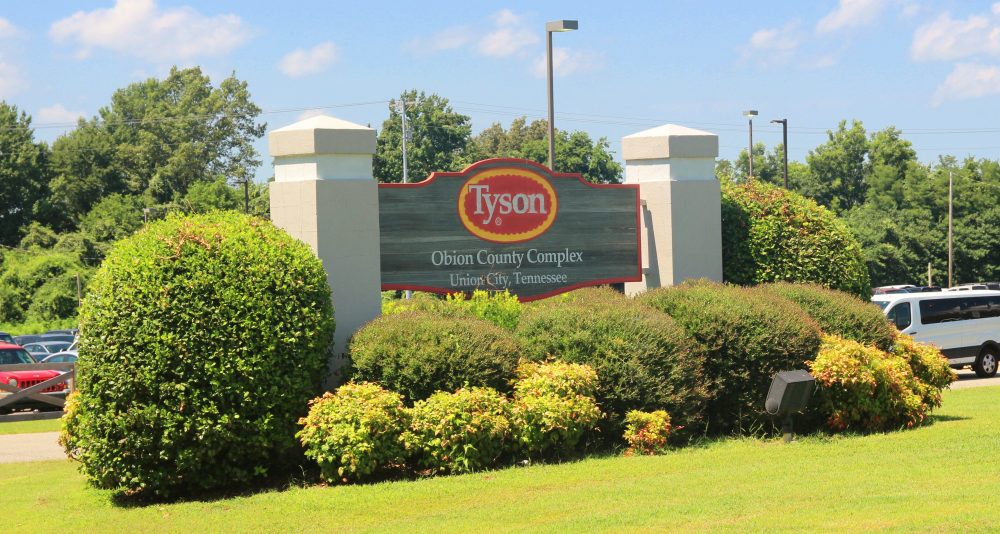Major meat processors are navigating significant shifts in their production capabilities and workforce management, a trend highlighted by recent announcements from industry giants like Tyson Foods, Perdue Farms, and Cargill Inc. These companies are actively adjusting their plant operations, leading to facility closures and affecting thousands of workers, while also exploring new avenues for staffing their labor-intensive operations.
At the center of recent public discourse is Tyson Foods, a company with a substantial footprint in the U.S. meat market. The company, known for products ranging from chicken nuggets to ground beef, employs approximately 120,000 people, with around 100,000 in roles requiring low-skilled labor, such as washing meat or placing cuts in trays. These positions are characterized by an extraordinarily high turnover rate, hovering around 40%.
Against this backdrop of a tight labor market, with unemployment historically low at around 4%, Tyson has faced challenges in maintaining a steady workforce. Company leadership indicated that keeping these jobs filled had been particularly difficult in recent years. This labor need intersected with the significant influx of migrants arriving in cities like New York, where roughly 175,000 people had arrived, many seeking employment.

Tyson began working with Tent Partnership for Refugees, a nonprofit that acts as a matchmaker connecting large companies with recent immigrants and refugees. Both Tyson and Tent expressed enthusiasm for the program, which aimed to hire refugees and asylum seekers. A Tyson press release underscored this initiative, stating, “We are proud to play our part in promoting a society that is welcoming and supportive of people from all backgrounds.”
In February of the previous year, a Bloomberg reporter, Simone Foxman, attended a hiring event in lower Manhattan. Despite the cold morning, the scene inside an office building was described as not looking “anything super special” from the outside. Translators, interviewers, and Tyson representatives were present to meet with a group of migrants from Mexico, Colombia, and Venezuela.
Potential employees underwent questioning and filled out applications. On the spot, jobs were offered for a chicken plant located in Humboldt, Tennessee. Initial hiring saw 17 people offered positions that day, with the event continuing for a couple more days, adding 70 more people the following week.
Tyson conducted multiple rounds of hiring in New York with the stated goal of hiring 2,500 asylum seekers and refugees through this method. Some of these new hires were intended for the Tennessee plant, which already had a workforce that included both American-born workers and recent immigrants.

While Tyson was actively recruiting in New York, another significant development unfolded elsewhere in the country. Unbeknownst to the Bloomberg reporter covering the New York hiring, a Wall Street Journal reporter was working on a separate story concerning Tyson that focused on workforce reduction, not expansion.
Simultaneously, the Wall Street Journal published an article reporting that Tyson was closing its pork plant in Perry, Iowa, resulting in the layoff of nearly all of its approximately 1,200 workers. The timing of these two articles—one detailing hiring, the other layoffs—led to immediate scrutiny and controversy.
The parallel narratives raised questions about whether the two stories were connected, suggesting the possibility of Tyson replacing American workers with migrant workers. This perception gained traction rapidly after the articles were published in March 2024.
A segment on the Fox News channel linked the two Tyson plant stories, drawing explicit parallels. Jesse Watters from Fox stated, “Perry, Iowa, is about to change drastically, and not for the better.” He highlighted the closure and the loss of around 1,200 jobs in a town of just 8,000 people, contrasting it with Tyson’s hiring efforts in New York.
Watters claimed, “Tyson Foods has its eyes on a different class of workers. The company is now offering new jobs to asylum seekers.” Following this, then Ohio senator and now vice president, JD Vance, appeared on the show, describing Tyson’s actions as part of a broader issue.
Vance asserted, “Every time an American is replaced with an illegal immigrant, it means that an American family loses a good family-supporting wage. It means that American companies are literally replacing our own citizens with people who will work for slave wages. That is not capitalism or a market economy, Jesse; that is the decimation of the American middle class via illegal immigration. And it’s happening all over the country.”

This viewpoint quickly went viral across social media platforms, sparking calls for a boycott of Tyson. A conservative investment firm divested from the company, and an advocacy group founded by Stephen Miller filed multiple complaints. The controversy intensified the debate surrounding immigration’s impact on American jobs.
Tyson Foods did not agree to an interview regarding the controversy but stated that they only hire immigrants who possess work permits and are legally authorized to work in the U.S. This point was insisted upon by the company when reached for comment.
Despite the company’s reluctance to discuss hiring refugees and asylum seekers publicly, one new worker, referred to as Camacaro (a family name) to protect his identity, agreed to share his experience. Camacaro, originally from a large city in Venezuela, spent a few months in New York before being hired by Tyson.
He pictured Tennessee, where the plant was located, as rural fields and barns, maybe like Topeka, a city he hadn’t visited but had read was highly recommended. Instead, he found himself in a small town. Camacaro, who previously worked for the Hugo Chavez government in Venezuela, never anticipated living or working in the U.S. due to past animosity between the two countries.
Venezuela’s economic decline and political turmoil over the past decade led Camacaro to fear for his life, prompting his decision to leave. He undertook the perilous journey through the Darién Gap, a dangerous rainforest region, and was temporarily held up in Mexico before finally crossing into the U.S. in October 2023.
Upon arrival, Camacaro applied for asylum and received a work permit while his case was pending. He utilized available resources in New York, including staying in migrant shelters set up by the city. He also visited churches and soup kitchens and received clothing donations.
He explained that they sometimes had excess clothing, which they would sell to buy food, doing what they could to make ends meet. This was his reality until he learned about the opportunity with Tyson, hearing about it from a friend.

Camacaro went to an office building in Manhattan for the hiring process. He described filling out an application, taking a drug test, and having his work permit verified. That day, he was among those offered a job at the chicken plant in Tennessee, involving cutting up chickens.
The job offered a starting rate of $16.50 per hour, standard for that plant and more than double the minimum wage in Tennessee. Additionally, he was promised a $4,000 signing bonus, paid relocation costs, and accommodation in a motel for two months. He told his wife upon signing, “I just signed. Come on. Let’s go. No turning back.”
Having not established deep roots in New York, it was relatively easy for them to relocate. They took the long bus ride to Tennessee. While his wife enjoyed the journey from the window seat, seeing sights like Washington, DC, and The Pentagon, Camacaro did not.
Upon arriving in Tennessee and settling into the motel, Camacaro began his new job. His first day was cold, and he wasn’t dressed warmly enough, fearing he might freeze. He described the work as incredibly repetitive, demonstrating the motion of hanging live chickens by their feet onto a shackle conveyor repeatedly.
He cracked his knuckles, explaining that the pain extends to his elbows, shoulders, and hands, reaching a point where his hands constantly hurt. Despite initial worries about anti-immigrant sentiment from American coworkers, he found the opposite to be true, making friends despite language barriers, with some colleagues attempting to speak Spanish with him.
He chuckled, noting they seemed to have primarily learned swear words, but appreciated the effort. After a few months, Camacaro felt settled, viewing his situation as “wildly good,” especially considering he had been living in a New York tent shelter less than a year prior. He considered it a “blessing” and saw himself as one of the “privileged ones” among migrants seeking jobs.

However, the job carries significant risks. The work is dangerous, involving chemicals and heavy machinery. Over the past decade, Tyson plants across the country have seen hundreds of worker injuries and a number of deaths. Despite the inherent dangers, Camacaro indicated that discussions about unions or organizing at the plant had not occurred.
When asked if he would join a union if one existed, he stated he wouldn’t want to be part of it, preferring to “just work and not have problems with anybody.” He attributed this stance to the precariousness of his situation.
Camacaro supports not only himself and his wife but also sends money back to Venezuela to support his children, mother, and sister. He feels unable to complain to management or consider quitting, as the reliable, well-paid work, despite the pain and danger, outweighs the negatives. For him, the job is essential.
This underscores why Tyson might go to significant lengths to recruit workers like Camacaro, who are often willing to relocate for stable employment. But the question remains whether Tyson prioritized immigrant workers over existing American employees.
To gain perspective from the other side of the controversy, specifically from the Perry, Iowa plant closure, reporters spoke with Jody Wells, who had worked at the plant since 1997. Wells initially sought employment there because the pay was better than most other places in town and she needed to support her three children.
Wells described her first job involving membrane skinning with a machine. Early in her tenure, she joined the union, stating she “needed some help, because I’ve always been mouthy,” hoping the union would protect her from being fired for speaking her mind, particularly her fondness for using the “F word.”
Around halfway through her career at the plant, Wells transitioned to a full-time union employee role. Despite her union position, she received no advance warning about the plant closure. Everyone was called to the cafeteria for what initially seemed like a large meeting.
Wells recounted, “Well, when we first got there, we were all laughing and joking. And, you know, we’re like family there.” But the mood shifted dramatically when managers distributed papers announcing the closure. People began to tear up, express anger, and ask, “What do we do now?” Wells described the atmosphere as one of profound sadness and upset.
Reflecting on her own reaction, Wells stated, “To be honest, I was pissed. That’s the only nice way I could put it, because I didn’t feel like they needed to close down our plant.” The layoffs were devastating for Perry, a small town where the Tyson plant was the largest employer. Many residents faced uncertainty about finding new jobs.
Tyson explained the Perry plant closure by citing its age and inefficiency, noting it was built in the early 1960s and was no longer needed. Wells described the last day as “so heartbreaking,” staying until the final person left, witnessing tears and people keeping their IDs as souvenirs. She noted that many employees had worked there for 10, 15, or 20 years and genuinely liked the job.
The closure has significantly impacted Perry, leading to a surge in unemployment claims. Several local businesses have closed or are struggling, and the town’s tax revenues have been hit. In her union role, Wells helped negotiate a plant closing agreement, securing severance for workers: $1,700 plus paid out vacations and holidays.
Regarding the suggestion from the controversy that Tyson was prioritizing migrant workers and that Perry employees weren’t given the chance to relocate, Wells clarified that relocation offers were extended to other Tyson facilities, including locations in Waterloo and Tennessee.
While Tyson disputes that the offer was limited, stating anyone could relocate, Wells believed it was offered only to a “certain amount” of workers, not everyone. Regardless, the option to move to the Tennessee plant reportedly existed for at least some Perry workers. However, most did not want to go.
Reasons cited by Perry workers for not relocating included potentially worse pay in Tennessee and being settled in Perry with children in school. Wells described Perry as a “great town, friendly people,” a “nice little town” that residents were reluctant to leave.
Tyson reported that 200 of the approximately 1,200 laid-off Perry workers did relocate to take jobs at other Tyson facilities. This willingness to relocate distinguishes some new hires, like Camacaro, who hadn’t put down deep roots, from long-term employees settled in towns like Perry.
Another aspect of the controversy involved the perception of the Perry plant workforce versus the new hires. The linking of the stories suggested the Perry plant was predominantly American workers, while the Tennessee plant was hiring non-Americans like asylum seekers and migrants.

The reality is that many individuals taking low-paying jobs in the U.S. are in a transitional space between immigrant and American status, including those with temporary work permits, green cards, or recent citizenship. Tyson acknowledges this, stating that 35% of its workforce consists of immigrants.
Months after speaking with Camacaro in Tennessee, reporters checked back in. Camacaro reported that things at the plant had become chaotic for him. Friends had expressed worry about potential impacts if President Trump took office, fearing job loss, deportation, or losing work permits.
In January, one of these fears materialized for Camacaro. He was informed by Tyson that his contract was suspended and he no longer had a job there. He stated, “They didn’t give me an explanation,” adding they said, “We’ll call you. You can apply again in six months.” He reiterated, “They just told me what they told me.”
Following his layoff from Tyson, Camacaro took on two jobs to manage financially. It is unclear if his job loss was related to political changes or simply a reduction in workforce needs at that specific time. Tyson declined to provide a reason for his layoff when asked.
Tyson’s operational approach involves constant adjustment across its vast network of over 220 facilities. Over the last decade, the company has engaged in considerable churn, opening or expanding 17 facilities (including bacon plants, distribution centers, and incubation centers) while simultaneously closing 18 of its large facilities.
This pattern of hiring groups of workers in one location while laying off others elsewhere appears to be an inherent part of Tyson’s business model. This restructuring trend is not unique to Tyson.
Perdue Farms recently confirmed plans to close its chicken production plant in Monterey, Tennessee, by March 28, eliminating about 433 jobs. The company cited changing market demand and the need for substantial investment to maintain operations at the aging facility. Perdue CEO Kevin McAdams stated, “This decision was not made lightly, and we are committed to treating every impacted associate with dignity, respect, and care,” adding they would provide severance and job placement support.
Putnam County Mayor Randy Porter acknowledged the impact on the community, where the plant has been a fixture for decades, expressing prayers for the affected employees and committing to assist them. Perdue’s action follows Tyson’s closures in 2023 (six chicken and two beef plants) and Pure Prairie Farms’ bankruptcy and Iowa plant closure.

Cargill Inc., another major player, announced it would close its turkey processing plant in Springdale, Arkansas, impacting approximately 1,100 workers. Cargill plans to move much of the production to other facilities in Missouri and Virginia. This aligns with Cargill’s broader strategy, including a 5% global workforce reduction amid declining earnings in certain sectors.
The Springdale closure affects fresh and frozen turkey production. Cargill stated it would fulfill grower contracts and continue processing at its numerous facilities in the U.S. and Canada, reflecting a shift in operational focus and scale within the industry.
These closures by major poultry companies like Perdue, Tyson, and Cargill are part of wider industry-wide restructuring efforts that have affected thousands of workers over the past two years, according to various reports. Industry analysts link these changes to challenges such as fluctuating demand, rising costs, and competition.
The closure of Tyson’s Dexter, Missouri plant in August 2023 also resulted in hundreds of job losses and significantly impacted contract farmers who raised egg-laying hens for the company. Farmers like Shawn Hinkle, who had invested heavily in their operations, faced potential bankruptcy after borrowing millions.

Tyson’s explanation for the Dexter closure mirrored others, citing efforts to streamline production and boost profits. However, farmers like Hinkle sued Tyson, alleging breaches of contract.
Documents filed in the lawsuit reveal coordination between Tyson and Cal-Maine Foods, which purchased the Dexter plant. This collaboration allegedly prevented farmers from continuing their operations with a competitor of Tyson. Cal-Maine offered contracts to Dexter farmers, but these required retrofitting farms for table egg production rather than meat, a significant operational change.
A crucial condition of Cal-Maine’s offer was that farmers must agree not to sue Tyson over losses from the plant closure. Furthermore, court filings suggest Tyson provided Cal-Maine with the data used to formulate these offers, indicating close coordination.
Attorneys for the farmers argue that Tyson’s actions, by collaborating with Cal-Maine, effectively blocked the plant from being acquired by a competing poultry meat company like Perdue or Sanderson, which would have been a more natural transition for the existing farmers. The farmers’ attorney questioned Tyson’s motive, suggesting it was to maintain a market advantage by keeping their plans secret from competitors.
The landscape of the U.S. meat processing industry is undergoing a period of significant transformation. Driven by factors including operational efficiency goals, market dynamics, and evolving labor needs, major companies are making strategic decisions that reshape communities and impact the lives of workers from diverse backgrounds. The narrative extends beyond simple headlines, revealing a complex interplay of business strategy, labor economics, and societal shifts, experienced profoundly by individuals like the long-term employee displaced by a closure and the new arrival seeking stability in a demanding job.
Related posts:
Tyson closed an Iowa plant and set off a controversy about immigrant workers : Planet Money : NPR
Perdue Farms to shutter Tennessee chicken plant
Perdue Farms to Shutter Tennessee Chicken Plant



